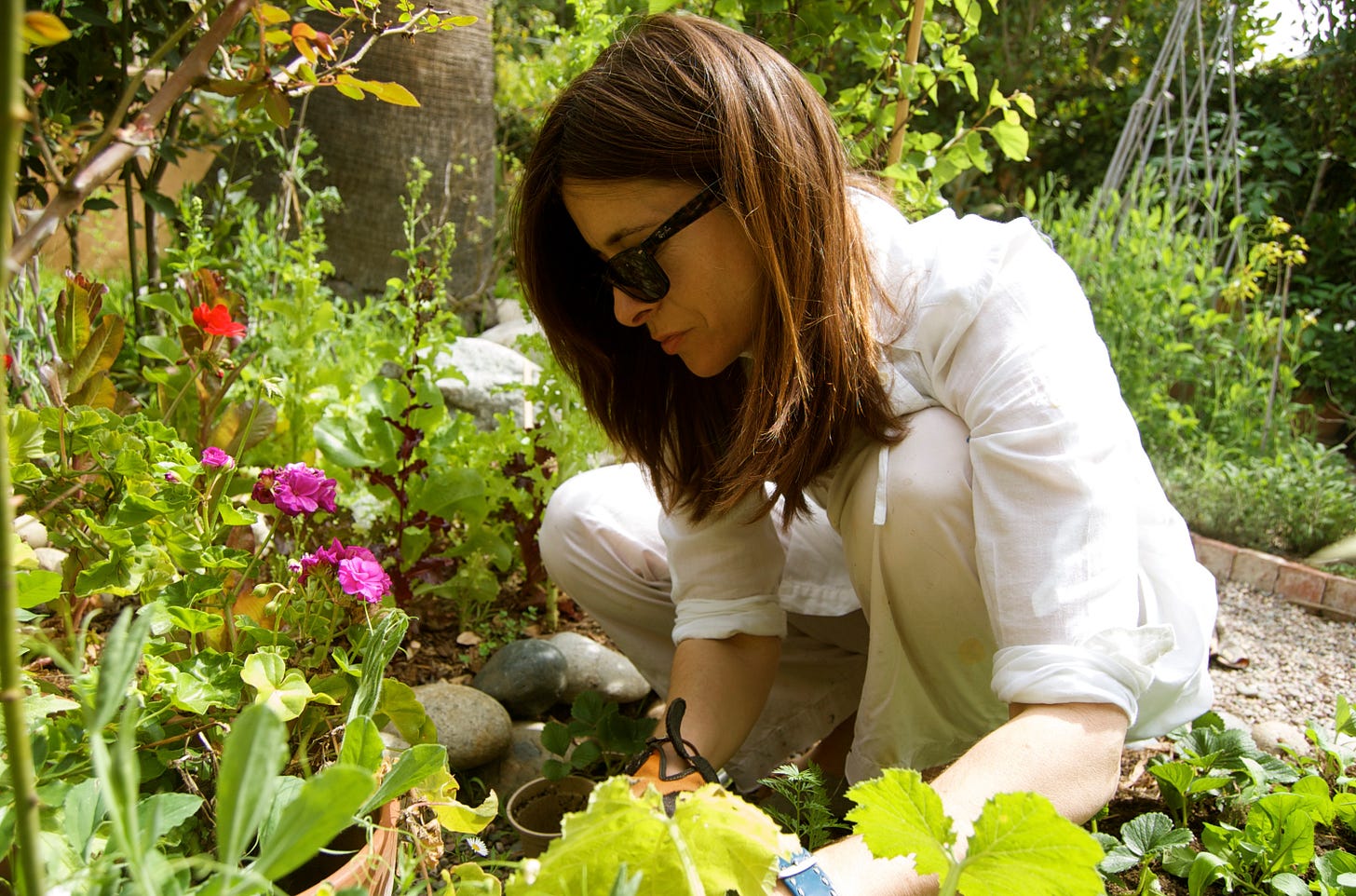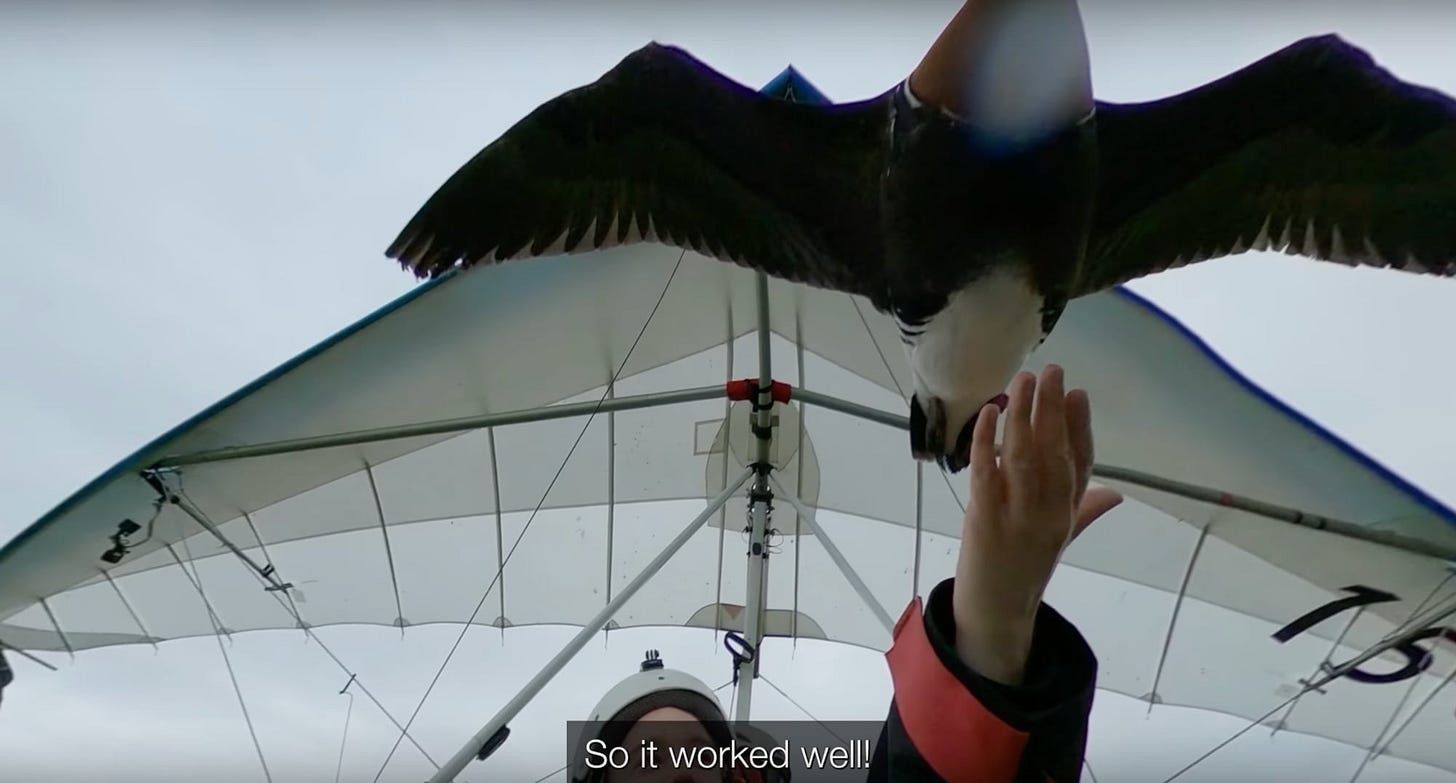Newsletter #11
The future belongs to those who believe in the beauty of their dreams - Eleanor Roosevelt
Hello Friends!
I hope that my newsletter offers some comfort during challenging times. This issue is particularly sweet. You will learn the story of Boneco; Valuable Sunscreen Information; a Great Idea for Communities Everywhere; Why a Lovely Man is Wearing his Trash; What is 234Birds, AKA 2/3 for the Birds and also about Safety Measures being Taken for Migrating Geese in France. Enjoy!
#1 Boneco
- the world’s only beekeeping donkey –
This is the story behind the image I shared on Instagram. The photo was taken by Nadia Shira Cohen in 2015 and was featured in an issue of National Geographic.
For centuries, donkeys helped develop northeast Brazil, hauling water, crops, and building materials. Urbanization led to out-of-work donkeys, thousands of which were slaughtered and their hides sent to China, where they’re used in traditional medicine.
In February, a federal regional court granted donkeys a stay of execution. While covering this long-simmering story in 2015, the photographer Nadia Shira Cohen heard about Boneco.
His inventive owner, a beekeeper named Manuel Juraci, needed a way to transport the honey he would collect from his beehives on his farm back to his home, so Boneco became his assistant beekeeper, complete with custom-made uniform.
Juraci fashioned the homemade protective suit for Boneco to guard against bee stings as the two go from hive to hive-collecting honey. Working together, they are the most successful honey harvesters in their area of Itatira, in the Brazilian state Ceará!
Watch video:
#2 Sunscreen
Photo by Lucie Elwes
I love spending as much time as I can outdoors. Spending time outdoors is really good for us, so it’s particularly important to know that more than half of sunscreens sold contain oxybenzone, a potential hormone disruptor, which readily penetrates the skin and can be found in the bodies of a great majority of people. When choosing a sunscreen, find one that is mineral-based, doesn’t have a super high SPF factor, and isn’t combined with bug repellent.
My go to and trusted resource, the EWG (Environmental Working Group), has a database of the best sunscreens available on the market. This year, EWG scientists assessed more than 1,850 products with SPF, and only about a quarter offer adequate protection without the use of concerning ingredients such as oxybenzone, a potentially endocrine-disrupting chemical that may increase the risk of breast cancer and endometriosis. Kids may also be especially vulnerable to harm from oxybenzone.
The good news is you can find safe and effective sunscreens without oxybenzone by checking out EWG’s Best Recreational Sunscreens and our list of Best Sunscreens for Kids and Babies!
Also, don’t forget to put sunscreen on your hands, especially when driving your car. The backs of our hands are particularly vulnerable and can experience sun damage even when we are inside our cars.
photo by Anthony Slayter-Ralph
#3 GO GO Kiwi
- a great idea: A pay as you go organic market in Paris -
The trend of organic, or bio products, as they are known in France, has been growing steadily over the last decade. France currently has the second largest number of organic producers in Europe (after Italy), and retail sales of organic products in France have skyrocketed.
Spotting the growing trend, founder of Go Go Kiwi Alexander Cloux developed an organic food store based on a simple premise: “The less the customer earns, the less they will pay.”
For people on minimum wage, Go Go Kiwi hopes to match the prices they would pay at chain stores in order to lure in customers who might not otherwise shop organic. But most of their customers, Cloux explains, were already buying some organic… but perhaps they weren’t able to allocate as much of their budget as they wanted to pay for bio products.
“The real success for me ” Cloux says, “is that we are supporting small farmers, local farmers, who are themselves employing people. It’s not just big companies owning a lot of land and doing agriculture with a lot of machinery. So at the same time, it has an environmental impact, and also a social and economic impact.”
Check out Go Go Kiwi on Instagram, or when in Paris, you can find them at 16, avenue de Laumiere, 75019 Paris
Source of this story.
#4 Rob Greenfield
- a gamechanger -
Rob Greenfield is an American environmental activist and adventurer. He is known for raising awareness for sustainability issues, often through attention-grabbing tactics.
His most recent mission took place recently in Los Angeles, where for 30 days, he wore every piece of trash that he created, the sort of trash that we don’t think twice about and that is usually out of sight and out of mind.
For one month, he lived like the average person- eating, shopping, consuming – like so many of us are used to. Did you know that the average person creates nearly 5 pounds of trash per day!
By day 28, he was up to 64 pounds of trash, and was feeling the burden that his waste has on Earth and humanity.
He hopes that this trash-wearing project enlightened every person he encountered, and created a wake up call where people deeply questioned their over-consumerism.
To reduce plastic waste, choose products that come in reusable glass jars, or buy dry goods like rice, grains and nuts in bulk using reusable produce bags. The items that are most successfully recycled are glass, aluminum, paper and cardboard.
Watch his video!
#5 234Birds
- Healthy landscapes, healthy birds and healthy us –
Since North America is losing an unprecedented amount of birds, due to habitat loss and pesticides, there are things we can do to help.
234birds has the tools to helps us play a valuable part in saving birds, starting with:
1- Plant 2 native plants for every 3
2- Remove invasives
3- Use no pesticides
You can also find more helpful information by clicking here --https://234birds.org/getting-started/
On their site, they also have a list you can sign, to hold yourself accountable, to be inspired by those who already have, and to inspire more to do the same.
I signed it! I love birds and I’ve planted native plants they love, provided lots of habitat and I don’t use any pesticides, ever. I’ve also left areas of my garden wild and untended for them to rummage in.
Click here to sign: https://234birds.org/the-list/
Via Edwina Von Gaal and the perfect earth project:
#6 Bird Protector
Back in 1995, Christian Moullec embarked on his first migration alongside a flock of lesser white-fronted geese that he intended to introduce to Sweden. He flew an adapted delta plane alongside the birds, which were threatened after being overhunted, and protect them on their journey. This initial mission quickly morphed into a now decades-long project of training avian populations to utilize more secure paths as they travel across Europe, ensuring that the already dwindled species would survive the trek and be able to reproduce.
English YouTuber and educator Tom Scott joins Moullec on one of the flights above Southern France as they glide in a microlight aircraft just inches from the animals—Scott is so close that he’s able to touch goose’s tail feathers.
Reaching this level of intimacy takes dedication and immersion in the flock, Moullec shares, saying that he raises the birds, sleeps with them, and even bathes in the pond on his property. This establishes trust and is essential as they define their routes, which sometimes traverse thousands of kilometers each day. “I’m not the one who teaches the birds to fly with me,” Moullec shares. “I’ve been flying with birds for 27 years, and they taught me how to fly with them.”
Source of this story
As always, thank you for your continued support of my newsletter!
Stay well and take care and see you back here mid-June,
All the best,
Priscilla
















Wow the video of the birds was amazing! Our connection to Mother Earth comes in many forms💞
Wonderful newsletter - thank you so much.
I particularly enjoyed reading about the birds...hope people begin to realize how harmful the wind turbines are to our bird population not too mention the noise they produce which is harmful to all of us including birds and animals. Thank you also for posting the links.